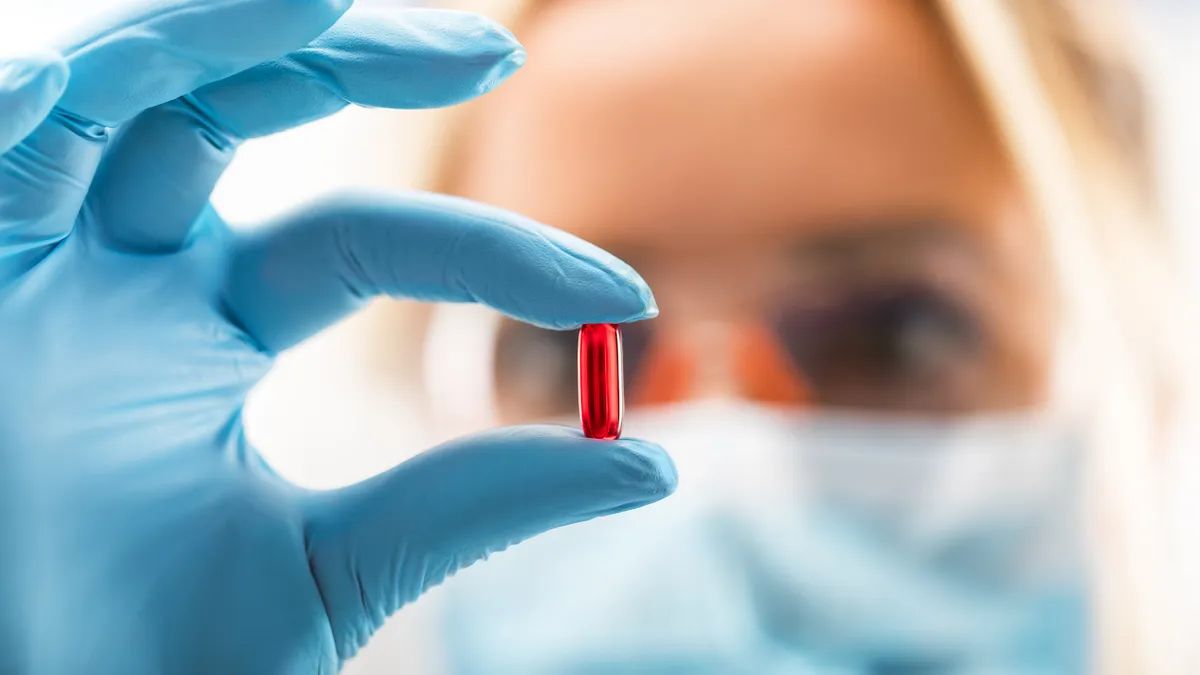Researchers at the NIH were stumped. It was 2013 and they were treating a patient perpetually on antibiotics for a seemingly never-ending series of bacterial infections. She must have some immune deficiency, they thought. But what?
Soon, their research would uncover a new and ultra-rare genetic disease now known as activated P13K delta (APDS) that depletes white blood cells and is estimated to affect one out of a million people. What’s more, they exposed the molecular target for the disease, providing drug developers with the tools to rapidly scale clinical trials for potential treatments.
And now, just a decade after the disease was initially discovered, the fruits of that labor are already being realized.
In late March, the FDA approved Joenja, a first-in-class medication for the disease that was initially developed by Novartis but was acquired and advanced by the Pharming Group in 2019. And just as the treatment sped into clinical trials, it’s also cruising into patients’ hands mere weeks after the approval.
“The product is going to be launched in early April,” Pharming’s CEO Dr. Sijmen de Vries said during his first interview after the approval, adding that “when you get to launch, you want to provide patients that have been waiting for a product as soon as possible.”
Expedited commercialization

Now that its won approval, the company is following a similar blueprint for commercialization that it did with Ruconest, its treatment for hereditary angioedema, de Vries said.
Roughly 30% of the patients diagnosed with APDS see an immunologist whom Pharming has an existing relationship with through Ruconest and over the last year they’ve built out a separate Joenja sales team to target pulmonologists, hematologists, oncologists and GI doctors who treat the other 70% of likely APDS patients.
For the 1,500 people with APDS so far identified across North America, the U.K., Europe, Australia and Japan — including 200 in the U.S. — Joenja will replace the hodge-podge assortment of antibiotics, immunosuppressants and immunoglobulin currently prescribed to manage the condition.
“The combination of symptoms is now reasonably well known,” de Vries said but noted that patients still are often sent to specialists who only treat one of their symptoms, which often leads to misdiagnosis.
In addition to expanding outreach to these physicians, the company has partnered with the genetic testing firm Invitae over the last two years to provide free diagnosis, counseling and education to certain eligible patients. It also emphasized family mapping and testing after a patient is diagnosed, as there’s a 50/50 chance that other children could have received the genetic components for the disease.
As Pharming looks to enter global markets over the next few years — with a European review of Joenja expected in the second half of this year and a clinical trial soon starting in Japan — it plans to continue providing diagnoses to find more potential patients.
A framework for the future
Considering the array of medications patients take to treat the disease, along with “the potentially disease modifying” nature of Joenja, de Vries argued that Pharming took “a relatively conservative stance” when setting the list price of the medication at $750 per tablet, or an estimated annual cost of $547,5000 per year.
"We try to position ourselves as being a partner of choice for (rare disease) companies."

Dr. Sijmen de Vries
CEO, Pharming Group
Assuming current trends continue, the medication is expected to be a boon for the company. Its stock shot up 33% on the day of the FDA approval, and Global Data predicts Joenja will bring in over $80 million in revenue over the next decade.
It’s also likely to be the only medication coming to the indication for a while, as GSK dropped its program for the disease. And if all goes well with the launch, de Vries believes the company could use a similar model for future in-licensed candidates.
“Adding 30 or 40 people to the organization to bring another product to the market is not a big deal. That gives us a lot of freedom to look for rare diseases and not necessarily focus on what our current areas of coverage are,” he said.
With only preclinical and early-stage programs left in its pipeline, including a study of Joenja in pediatric indications, Pharming is also hoping to “set itself apart” from other small, rare disease companies by acquiring compounds and doubling down on the commercial expertise it amassed through the launches of Ruconest and Joenja. While de Vries said the company is looking for drugs that “make a meaningful difference to a serious rare disease,” and are in advanced stages of development with proof of concept, he said it’s yet to narrow down on indication areas or compounds.
“We try to position ourselves as being a partner of choice for (rare disease) companies and take their assets to the market for them because that's really become one of our core competencies,” he explained. “And that's not a trivial thing. It's very different from approaching mass markets or specialty markets. And that is what we do.”





















